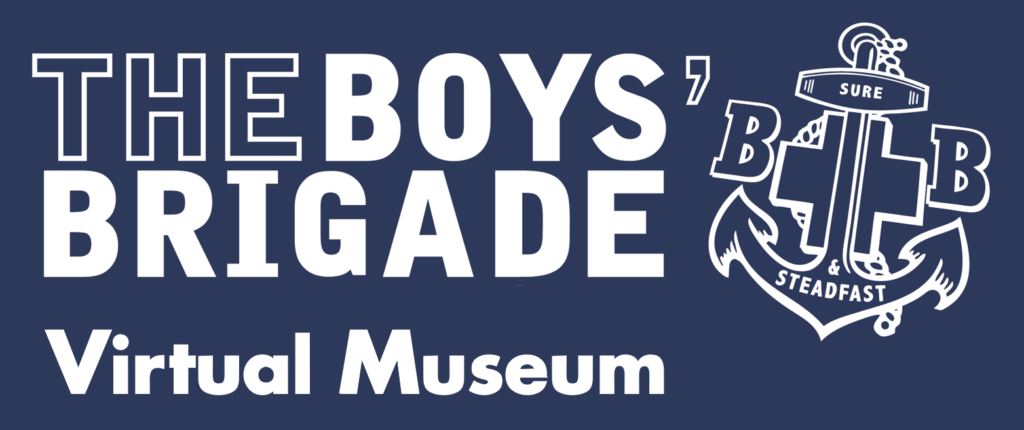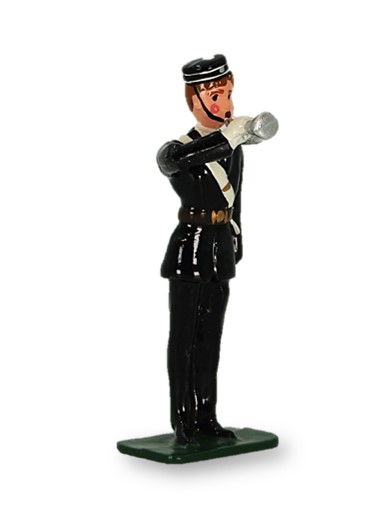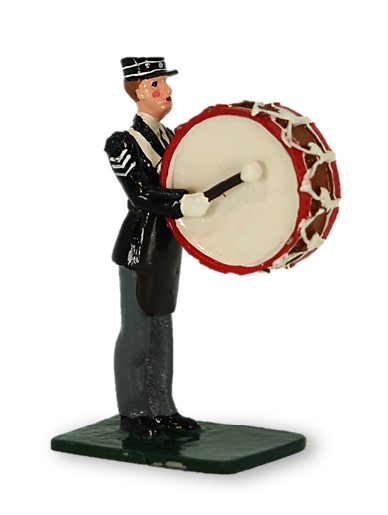1994 – Amicus
From the 1970’s onwards, The Boys’ Brigade, alongside churches and other youth organisations, were finding it increasingly difficult to retain older boys. In fact, during the 1980s membership overall fell by a third, with the reduction in Company Sections taking the largest cut of 50%.
Even though the losses were significant, the belief in The Boys’ Brigade was still that they had an important role to play in contributing to the churches’ work with the teenage group. As a reaction to this need, the BB launched Amicus in January 1994; a pilot scheme intended to be an alternative programme for young people between 15 and 22, in order to retain the Brigade’s teenage membership, and where possible, even increase the Brigade’s teenage membership.
A working party report ‘Increasing Teenage Membership – A New Approach’ – endorsed by the Brigade Executive, established the criteria for running the pilot scheme and the performance measures used in the evaluation were based exclusively on this report. A Project Manager was appointed to oversee the scheme; to train and establish between 20 and 30 groups throughout the United Kingdom for approximately two years, and a Support Group established to assist in this task.
By 1997, 25 Amicus Groups were reported to operating, 22 in England, 2 in Scotland and 1 in Wales, operating to some degree of success, however integration into BB activities was not straightforward. It was reported in the Amicus pilot scheme evaluation report of May 1997 that: A number of groups have indicated that Battalions have been no less than obstructive in their acceptance to a local Amicus Group. Some groups have experienced difficulties in entering Battalion and District competitions because of the fact that girls would be included in their team. Whilst obviously, there are restrictions placed upon some sports, in relation to mixed teams, by governing bodies such as the Football Association, in events such as Masterteam and Cross Country, such formal restrictions did not apply. On one occasion an Amicus Group entered and won a District Masterteam Competition much to the consternation of the organisers. It was further reported that there had even been instances when local groups have been given support by the Battalions only to be excluded from involvement in Battalion events by the person organising the event.
The structure for running an Amicus group was radically different to that of a traditional BB Section, where the leaders deliver the programme content. The Amicus programme encouraged a greater level of ownership of the programme by the young people and all members have an equal opportunity to contribute to the running of the group.
Groups generally were attached to existing Boys’ Brigade Companies, however there was provision for a group to be formed independent of a Boys’ Brigade Company, providing that a BB Captain was appointed. Leaders were appointed by the local church on completion of Amicus Leader Training, their role being to co-ordinate group activities and programme but not necessarily to deliver it. Amicus was less prescriptive than some of its counterparts and its members had a greater say in what happens and when. Groups determined their own programme based on a five-sided framework, developing the members’ experience of Christian leadership, adventure, community and environment, physical activities and interests.
The trial period ended in 2000, and whilst it was recognised that there was considerable reluctance within the Brigade to see Amicus groups established, the trail period was extended. The concerns remained that it would: ‘distract from existing programmes for seniors and others are unhappy that Amicus groups are for both sexes.’ The Brigade Council which met on the 6th September 2008, formally included Amicus in the regulations of The Boys’ Brigade, with the object being: the advancement of Christ’s Kingdom among young people. The regulations further stated: The Object shall be promoted by Christian teaching, programmes of activity and any such methods which may include sport, adventure and learning as may be recognised by Brigade Council as being of value in the personal development of its members.
With the introduction of the Girls Association in 2009, there was now more opportunity for mixed sex programming, and whilst this solved some of the issue of the past where Battalions were not providing activities and competitions for Girls, it also meant that there was no longer the need to use the Amicus programme as a means of reaching out to Girls. The Amicus programme has never proven popular, and many of the early adopters of the scheme, have either closed the Amicus group, or in some instances The Boys’ Brigade Company itself has been closed. By the early 2020’s there were no more than 4 Amicus groups in operation.

Amicus is from the Latin for ‘Friend’ and therefore in using this name there is the suggestion of ‘friendship’ or ‘a group of friends’ or ‘friends of Jesus’.



